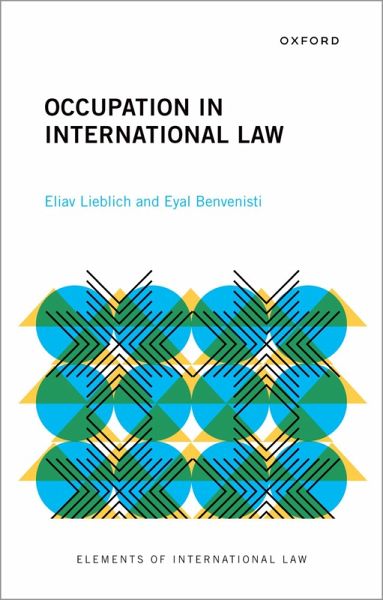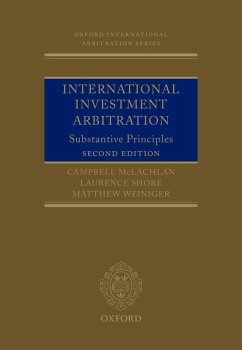
Occupation in International Law (eBook, ePUB)
Versandkostenfrei!
Sofort per Download lieferbar
15,95 €
inkl. MwSt.
Weitere Ausgaben:

PAYBACK Punkte
8 °P sammeln!
The international law of occupation is the body of law, under international humanitarian law, that regulates the actions of states that gain effective control over territory during armed conflict. This body of law seeks to balance between several interests, which are often in tension with one another. Its most fundamental principle is that occupation does not confer sovereignty, and that the powers of the occupant are limited to that of a temporary trustee. What empowers the occupant to maintain public order and safety, including that of its own forces? How are the rights of the absent soverei...
The international law of occupation is the body of law, under international humanitarian law, that regulates the actions of states that gain effective control over territory during armed conflict. This body of law seeks to balance between several interests, which are often in tension with one another. Its most fundamental principle is that occupation does not confer sovereignty, and that the powers of the occupant are limited to that of a temporary trustee. What empowers the occupant to maintain public order and safety, including that of its own forces? How are the rights of the absent sovereign protected, as well as the right to self-determination, and the individual rights of the local population? In this new volume of the Elements of International Law series, Eyal Benvenisti and Eliav Lieblich seek to provide an entry point to the topic by elaborating on general principles and key rules. The book explores the tensions and dilemmas which characterize the modern law of occupation, while highlighting, when needed, interpretations which best conform with the law's object and purpose. All in all, this book aims to guide relevant actors - whether states, academics, NGOs, or individuals under occupation - when seeking to assess or to challenge state actions in occupied territories.
Dieser Download kann aus rechtlichen Gründen nur mit Rechnungsadresse in A, B, BG, CY, CZ, D, DK, EW, E, FIN, F, GR, HR, H, IRL, I, LT, L, LR, M, NL, PL, P, R, S, SLO, SK ausgeliefert werden.













